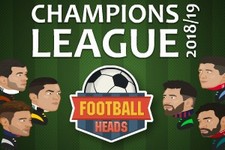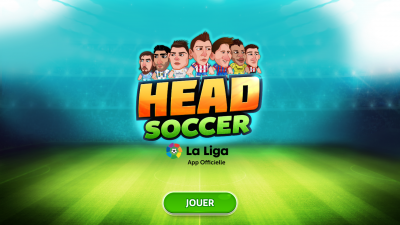
The internal and external framing of a coaches role can impact their reflection, suggesting perspective can be a limitation promoting the idea of a coaching community for feedback. Coaching expertise requires this knowledge much like teachers as each experience can confirm or contradict a prior belief in player performance. The understanding of oneself and ability to use introspection and reflection are skills that take time to develop, using deliberate practice in each changing context. Their recognition of personal ethical views and disposition are also elements of intrapersonal knowledge.

HEAD SOCCER 2015 UNBLOCKED PROFESSIONAL
Intrapersonality Ī coaches ability to improve relies on professional development in continued learning which uses a combination of evaluation and reflective practice. Įxcellent communication skills are imperative for coaches in order to provide their athletes with the adequate skills, knowledge and mental as well as tactical ability. being one of the most crucial to get right. Effective coaches have knowledge that helps in all social contexts to make the best of each situation, with the coach athlete relationship. The relationships built in a sports team influence the social interactions which can affect player performance and development, fan culture, and in professional sport, financial backing. Much of coaching involves interacting with players, staff, community, opposition, and then family members in youth sport.

Keeping sports people safe, and healthy while participating are responsibilities of a coach as well as awareness of social factors like the relative age effect. Ĭoaching is not just about sport specific skills and education, especially when taking a holistic approach. This category of knowledge is what most coach education has been focused on but this alone is not enough to be an effective coach. Including the " ologies" of sports science like sport psychology, sport biomechanics, sport nutrition, exercise physiology, motor control, critical thinking, sociology, strength and conditioning, and sporting tactics, with all the associated sub areas of knowledge. The subject, sport, curricular, and pedagogical knowledge all fall under this category of professional coaches knowledge. The combination of professional, interpersonal, and intrapersonal knowledge can lead to good thinking habits, maturity, wisdom, and capacity to make reasonable judgements.

It is rare in professional sport for a team not to hire a former professional player, but playing and coaching have different knowledge bases. Then when considering professional development requiring the skills to learn from experience while utilizing reflective practice, intrapersonal knowledge has been included. When considering the need to build relationships with others and athletes, interpersonal knowledge has been included. Many categories falling under content knowledge, pedagogical knowledge, pedagogical-content knowledge. Teachers knowledge has been categorized, like coaches knowledge with various terms being used. Knowledge Ĭoaches require descriptive knowledge and procedural knowledge that relate to all aspects of coaching, with expert coaches using tacit knowledge more freely.

Ī widely used definition of effective coaching is "The consistent application of integrated professional, interpersonal, and intrapersonal knowledge, to improve athletes competence, confidence, connection, and character in specific coaching contexts". Coaching expertise or effectiveness describes good coaching, which looks at coaching behaviour, dispositions, education, experience, and knowledge. Traditionally coaching expertise or effectiveness has been measured by win–loss percentage, satisfaction of players, or years of coaching experience, but like in teacher expertise those metrics are highly ambiguous. John Wooden had a philosophy of coaching that encouraged planning, organization, and understanding, and that knowledge was important but not everything when being an effective coach. In the First World War, military units sought out the coaches to supervise physical conditioning and develop morale-building teams. It gradually professionalized in the Victorian era and the role was well established by 1914. For sports to become professionalized, "coacher" had to become established. īritain took the lead in upgrading the status of sports in the 19th century. Students at the University of Oxford in the early nineteenth century used the slang word to refer to a private tutor who would drive a less able student through his examinations just like horse driving. The original sense of the word coach is that of a horse-drawn carriage, deriving ultimately from the Hungarian city of Kocs where such vehicles were first made.


 0 kommentar(er)
0 kommentar(er)
